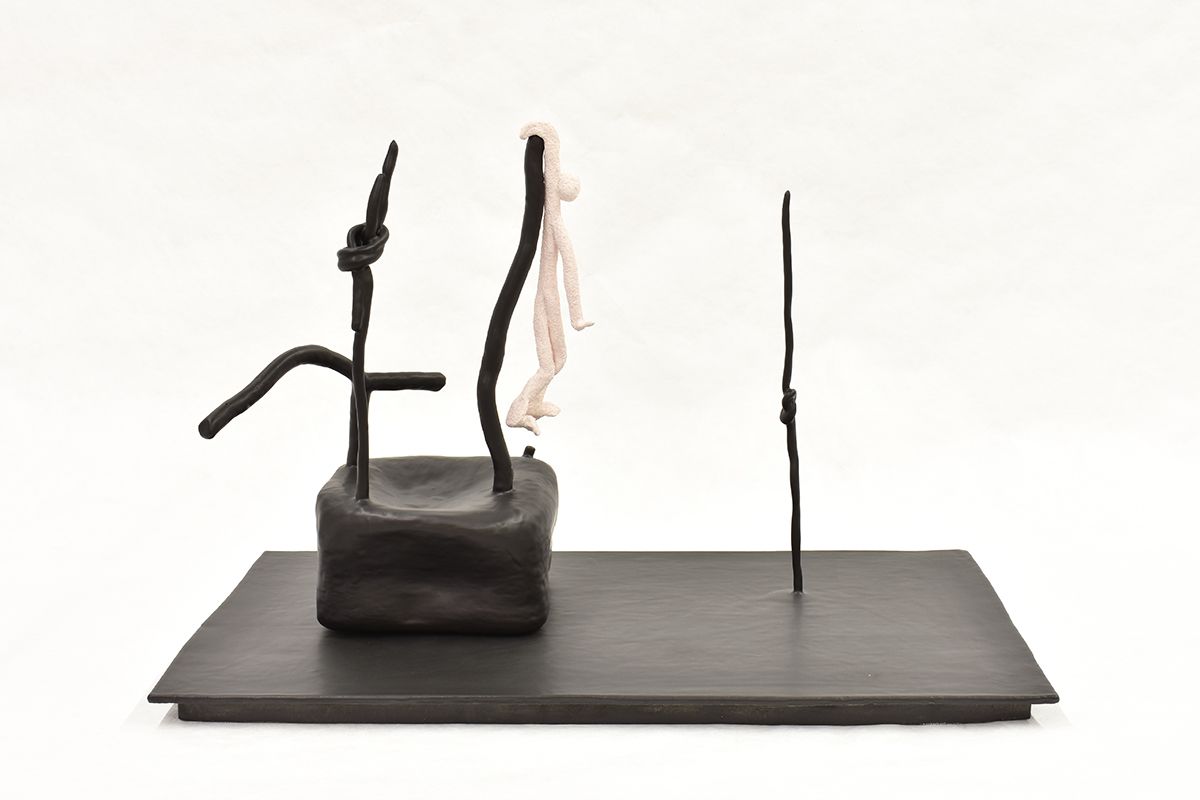Prosper, Phantom Limb presents intimate, self-contained ceramic sculptures that offer a meditation on the nature of the creative act and the ways both physical and metaphorical displacements compress historical time. Much of the work on view begins with Wine’s father, a trained hypnotherapist who has in recent years worked as a debt collector and a car auctioneer. During this period, he made stacked arrangements of dried citrus fruits that look like petrified megaliths in miniature. They are oddly compelling objects that often take years to create because of how long it takes for the whole fruit—skin and all—to dry. Wine’s father does not consider them art, but it is hard, Wine believes, not to see them otherwise. At the least, they are artistic, but most importantly is the commitment and faith Wine’s father places in the pieces. He invests tremendous creative energy without the demand for reward or even praise from viewers. It is an act both heroic and humble.
The emotional resonance found in the citrus “non-sculptures” has been literally transposed to Wine’s work, as several of them are incorporated into his assemblages like Public Sculpture, to be installed in Manhattan, 2019. Wine’s pieces are worlds into themselves, but grow in meaning in relation to one another. They combine elements of figuration—the basic contours of human form, for instances—with aspects of abstraction: bulbous, gelatinous, curved constructions. The latter reference examples of Modernist sculpture without being derivative or suggesting a simplistic kind of appropriation. Instead, there is a sense that Wine has found how the shapes and gestures of the past resonate today, how the objects of Henry Moore, for instance, made in the anxious filled years of interwar Britain mirror the uncertainty and despair felt by many presently. Other historical allusions abound but they are less easy to suss out. They arise in a kind of trembling one feels in the vibrations from the past, and become more present the longer one spends with Wine’s work.
The movement in time created in Wine’s sculpture also align with his reflections on not only his own peripatetic life but also a more general sense of rootlessness and wandering. Some of this is quite positive and inspiring, as when one is in an unfamiliar locale and become hypersensitive to nuances and differences. Other times, it reminds one how the need for home never dissipates, although its desire can be slaked in the imaginary. Several works conceive “ideal homes,” dreamscapes made tangible, like Zillow, or even more literal as with Wine’s depiction of his father’s house. The somber, reflective mood introduced by these objects is buoyed by several other playful pieces that depict Wine, to some extent, in a series of poses: cradling his head, lying back and clapping his hands. The mix of melancholy, humor, surrealism, and historicity in Prosper, Phantom Limb makes for a poignant reflection on the necessity of making, of being creative, of finding some way to generate tangible meaning from the dross of life. It’s about why to wake up in the morning.














































































































